Egyptian writer Ahmed Awny divigates between fiction and reality in this decentering short story.
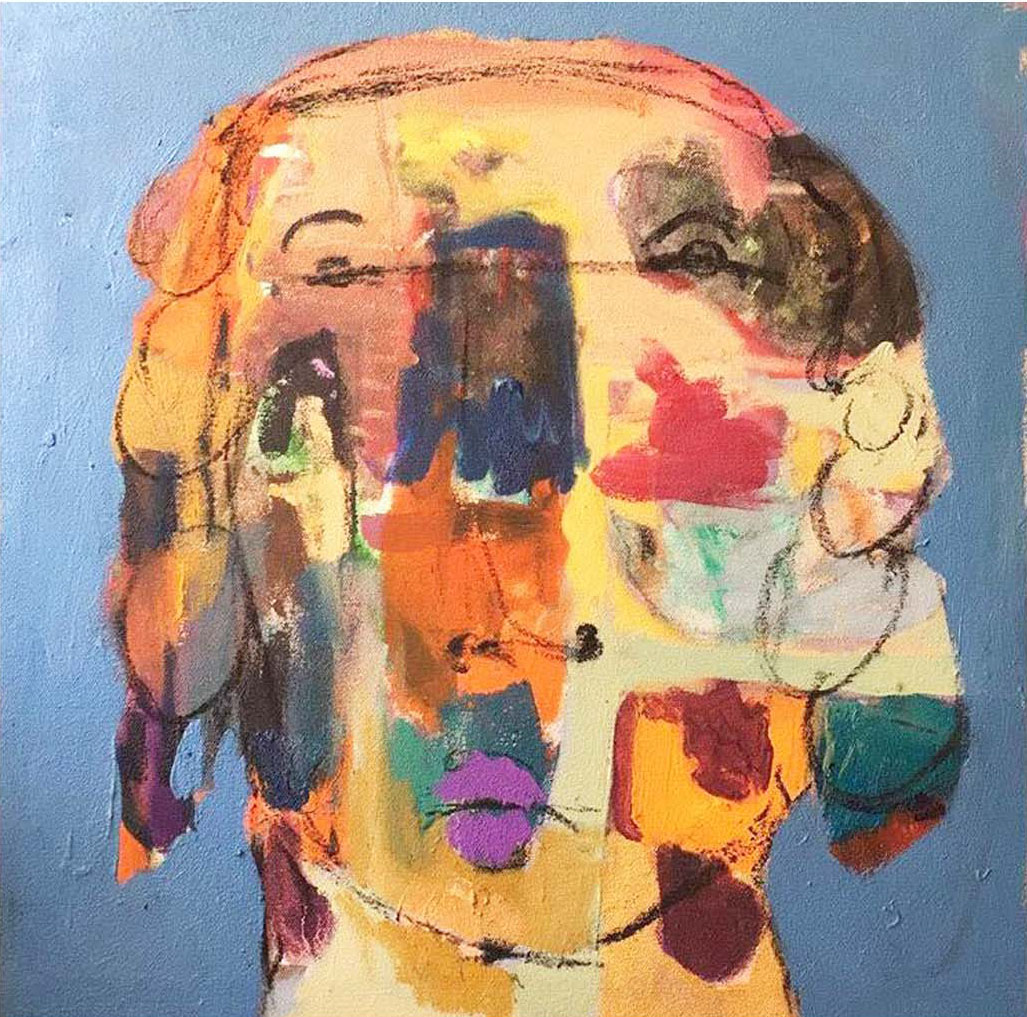
1
The scariest thing about telling a lie is the possibility that as soon as the words leave your mouth, you will end up believing them. I should know. That’s exactly what happened to me.
Four days ago, I lied to my roommates that I had to return to Cairo on the pretext of my father’s sudden illness, when in fact I had my sister’s wedding to attend. Although I would have been more than appeased with a show of sympathy, and an acknowledgement of my dire and unenviable circumstances, my friends’ sympathy not only relieved me of my turn to clean the house, but the courtesy was extended to allow me to place a whole chicken in our refrigerator — which up until that moment had strictly been a meat-free zone.
And so it was that all I rattled on about was my father’s ailing health, as well as a fear that I might, for a myriad unfathomable reasons, be arrested at Cairo airport as soon as I landed. I so wallowed in my feigned depression and anxiety that an actual darkness soon took hold of me, consuming my every thought that no number of Instagram posts of smiling Egyptian friends cavorting in their swimwear, or any of their photos taken against a backdrop of what appeared to be the same mundane Cairo I had left only a year ago, managed to alleviate. A place where one was never too far from a raging fire, insecure in the knowledge of whether its flames were primed for a festive barbeque or designed to consume and incinerate one into oblivion.
Perhaps the most terrifying facet of a lie is the possibility that it self-fulfills — renders itself prophetic. Such is the arbitrariness of life. At least that is how I felt on my way to the airport. Although the taxi driver was German (preferable to both the reckless Turk or the Arab who will spend the trip cursing the infidels or trying to set me up with a menial job), he was also white, a skin tone that prophecied that the recurrent question — What are you doing in Berlin? — the one that you were never certain stemmed from a genuine curiosity or a loitering aggression, would soon be forthcoming.
I closed my eyes feigning sleep. And yet, the unposed question played itself in my mind, in turn voiced by my father, my mother, my sister, and then the wedding guests, taking turns, one fading before the next one appeared, like in a well-designed Instagram reel. Incessantly, I strived to formulate the best answer. Suffering? I knew I would garner no sympathizers with this rejoinder, particularly with those who still held on to the hope of one day fleeing true suffering in Cairo. Self-Discovery? They all knew that it was the bullshit of an excuse that I had used to make it to Berlin in the first place. That Berlin was like a comfortable bed in a hotel room, a refuge after years of anxiety and restlessness in Cairo, a place where I could enjoy saunas, drink beer out in the open, and wade naked in lakes? Recoiling from what is most likely the closest I’ll ever give to a truthful answer, I excluded this one too.
It was then that I recalled my sister’s last letter — no sweeter saving grace, lending credence to my “alleged” anxiety:
“Clean up your phone. Don’t exaggerate. Make sure you go over everything on there. They just arrested Shadi at the airport for commenting on a post on someone’s feed about torture at one of the precincts.”
I swallowed the Xanax pill that I had been saving for my arrival at Cairo International Airport, and closed my eyes again. Now, with my imagination in full swing, the question of what I was doing in Berlin turned sinister and accusatory as I imagined it hurled at me by some officer at passport control. My panic now truly justified, I texted some of my friends that had been back to Cairo and gone through security inspection, what it was that I was supposed to do to avoid detainment and what it meant not to exaggerate in cleaning up my phone. Let’s just say that it doesn’t help much when your friends are mostly intellectuals, lovers of literature and philosophy. As such, one explained that I should conceive of the officer as a guest, and my phone as a house and that my job was to convince the officer that I, by default, kept a clean and tidy home at all times because I was, naturally, a clean and tidy person. Therefore, if the officer were to be met with the overpowering smell of detergents from the exaggerated cleaning, it would trigger his suspicions that I was most likely trying to hide something. Another friend ambiguously insinuated that it was less suspicious to hug a person after a long day being outdoors than one smelling of shampoo, and yet another left me with the sage, yet disingenuous, advice to “use my brain cells and figure it out.”
Why did I leave Egypt? Because I could no longer stand fear and hope coexisting in the same space, occupying the same moment in time. Even children, obsessed with amusement parks, couldn’t stomach a roller coaster every morning on an empty stomach. And why should I go back to a place where the “cleanliness” of a phone could come between the freedom of enjoying a sister’s wedding and imprisonment for an indefinite number of years? Assailed by so many questions going through my head, I disembarked from the taxi and sat next to my bags at the entrance to Berlin airport trying to “clean” my phone, knowing the absurdity of the task. OK! I told myself, a thorough cleaning is suspicious so I won’t delete any apps, search history, and photos as I had intended. But what about messages with activists, artists and writers? Do I wipe their existence from my contact list, reminded that so-and-so had been investigated for merely being on his detained friend’s contact list? And which keyword do I look for that could put me at risk? Where does one begin to explain why they would view daily videos of prisoners in Egypt while sitting in the park? Panicked, all I could think of was one thing: What was I doing in Berlin?
Luckily, the Xanax pill I’d taken in the taxi finally kicked in. A little calmer now, I took hold of my bag and headed to the airline reassuring myself that interrogations such as the ones I had been conjuring up in my mind were a rarity, and that I was far removed from being a person of interest to any government. Besides, I told myself in a final bid that lay to rest all remaining anxieties, Egypt was a country that allowed for freedom of exit and entry. Wasn’t it the soon-to-be host of the upcoming International Climate Summit?
That all held true until the next moment when I received a text message from a friend, recently released from jail, telling me that he’d heard from my sister that I was headed to Cairo, and insisting that we meet. I imagined what would happen, if this text, or one similar to it from any other friend, were to arrive just as the officer at the Cairo airport was engaged in checking the “cleanliness” of my phone — I stood still and all I could think of was how only a fool would think to clean his house in the midst of a raging sandstorm.
2
I live in a house with six other people who all believe that my stay in Berlin is funded by an Egyptian institution whilst I complete my novel. Alhamdullilah, I am the only Egyptian, otherwise my evenings, this past year, would have been spent weeping with nostalgia. Two of my roommates are Arab, and as such were the only ones awake when I made it home by dawn.
Zain is Palestinian, and like me, a rebel at heart; he continues to use plastic shopping bags, against the wishes of the other residents. However, we’ve had a strained relationship ever since the night he told me about his father. Born in Germany, both father and son insist that their stay in this country is interim until a return to their homeland is secure. I blew up in his face, angry at his words and with their attitude — and most likely angry at myself — lashing out that a man should take a stand and decide once and for all where he is to be, otherwise one risks wasting one’s entire life locked within, and confined to, a state of permanent temporariness.
Hassan, the other Arab, is a Syrian writer who has managed to receive every writing grant that has been denied me. He has now started ending every argument with “…because of Putin” reasoning that all future grants will now be allocated to the Ukrainian refugees. We’ve actually become stronger friends since he started worrying about his future. However, my feelings have changed towards him. I harbor a shameful feeling of resentment — maybe even hatred — towards Hassan that burrows far deeper than grants and seminars. It most likely started to seep in when I accompanied him to one of the Syrian demonstrations here in Berlin. While I was committed to shedding tears over the Syrian tragedy, I was equally amazed at the ferocity of their chants, in German. It was as if with the loss of their homes, their roofs in Syria, the sky was indeed their limit and their resounding chants of “We Are Here, Deal With It” was not only for the benefit of the Germans, but also for the Syrians themselves who were drawing a clear line between their past and their future.
It was two days after this demonstration, if I’m to be exact, that my hatred for Hassan really cemented itself as I contemplated joining a silent Egyptian march calling for the release of Egypt’s political prisoners. I stood on the sidewalk trying to identify the participants and failed. Every one of them had concealed their identity under hats and wigs, with some hiding behind black glasses and corona masks. I may have spent half an hour trying to identify individuals by observing details on their hands or the way they moved their body. I left soon after realizing that I was standing right by the embassy informants who were waiting for any one of the participants to remove their mask — even if momentarily to catch a breath of fresh air — so they could record their face on their phone camera.
I walked twelve kilometers that day. And although, unlike any other day, I had foresaken my headphones, a beautiful tune from a title sequence of a program on immigrants that we had watched as children, rang in my ears in a tormenting loop:
Egypt is with you, it never forgets you,
To the end of the universe, Egypt is with you!
Anyway, I ignored both Zain and Hassan and headed straight to my room to sleep, but not before I made sure to book a next-day flight to Cairo. I would still make it in time for my sister’s wedding.
This morning, I’ve woken up and come to a decision that I feel certain will put an end to my discombobulated disquiet regarding Egyptian border control. My plan is to immediately set about writing an article, a story, a novel or any profanity that would render me culprit for airing out my country’s dirty laundry. It was the only way I could think of to validate my anxiety. This was way better than stepping in blindly into the murky waters of speculation. This way I would in fact have a solid reason onto which I could tether my fear and face border control agents prepared. I figured the piece needn’t have any literary or political value. All it needed to include was anything and everything I had thought suspicious enough to erase from my phone.
However, in the time it took to make my morning coffee, my “brilliant” idea had lost much of its intial momentum, completely fizzling away to nothing by the time I glimpsed Thomas heading out for his daily run. Thomas, a German, is fluent in English, and had at some point worked in the Middle East. He was someone I was comfortable enough with to share my occasional derision of the Germans. He seemed genuinely impressed with everything I said, his goofy charitable smile always at the ready. And yet, even I knew that it would be a hard sell to convince him, let alone anyone else, of the likelihood that an Egyptian officer at a busy airport would randomly stumble across the work that I wanted them to catch. Besides, how was one to gauge what others would find offensive? Wasn’t it presumptuous to assume that all officers thought alike? What trangression would have to appear on my phone that would be enough for the officer to restrict my return to my own country, and in the process provide me with a legitimate cause to apply for asylum in Germany?
I knocked on Hassan’s door to invite him out for shawarma. Our familiar ritual usually included Hassan hurling insults at passersby, in Arabic, and flinging his cigarette stubs into the air when he was done smoking. He’d grumble at how much German he could hear on the streets of Berlin spoken by these “westerners” before he’d launch into outrageously loud singing. Today, I told myself, I would set aside my shame at his behavior and go along with his ridiculous, juvenile and harmless rebellion. I would refrain from my usual request for him to lower his voice and my incessant instructions that he show respect to the natives so that they, in return, may grant us the same favor.
But something was different today. For starters, Hassan neither called out to me to enter the room nor mocked me for my habit of knocking as polite as the Germans. Instead, he flung open the door, and from the threshold, brusquely asked me why I had not boarded the plane and returned home. I answered him with the truth. At least half a truth. I explained about by panic attack, adding that my father’s health had improved significantly which meant there had been no need for my initial haste. Hassan’s response was swift and biting. Congratulations to your sister! he said. Stunned into silence, all I could do was look at him as he explained how he’d reached out to my sister on Facebook, worried how upset I had been at my father’s failing health. He derided my deceit, and expressed his disbelief at how, by doing what I had done, I had treated him as if her were one of the ‘foreigners” before he slammed the door shut in my face. Honestly, I could barely keep up with what he had been saying, for all I could see in my mind’s eye were the crestfallen faces of my family when they learnt of my deception. I imagined a sickened father, ailing because of his son’s misdeed.
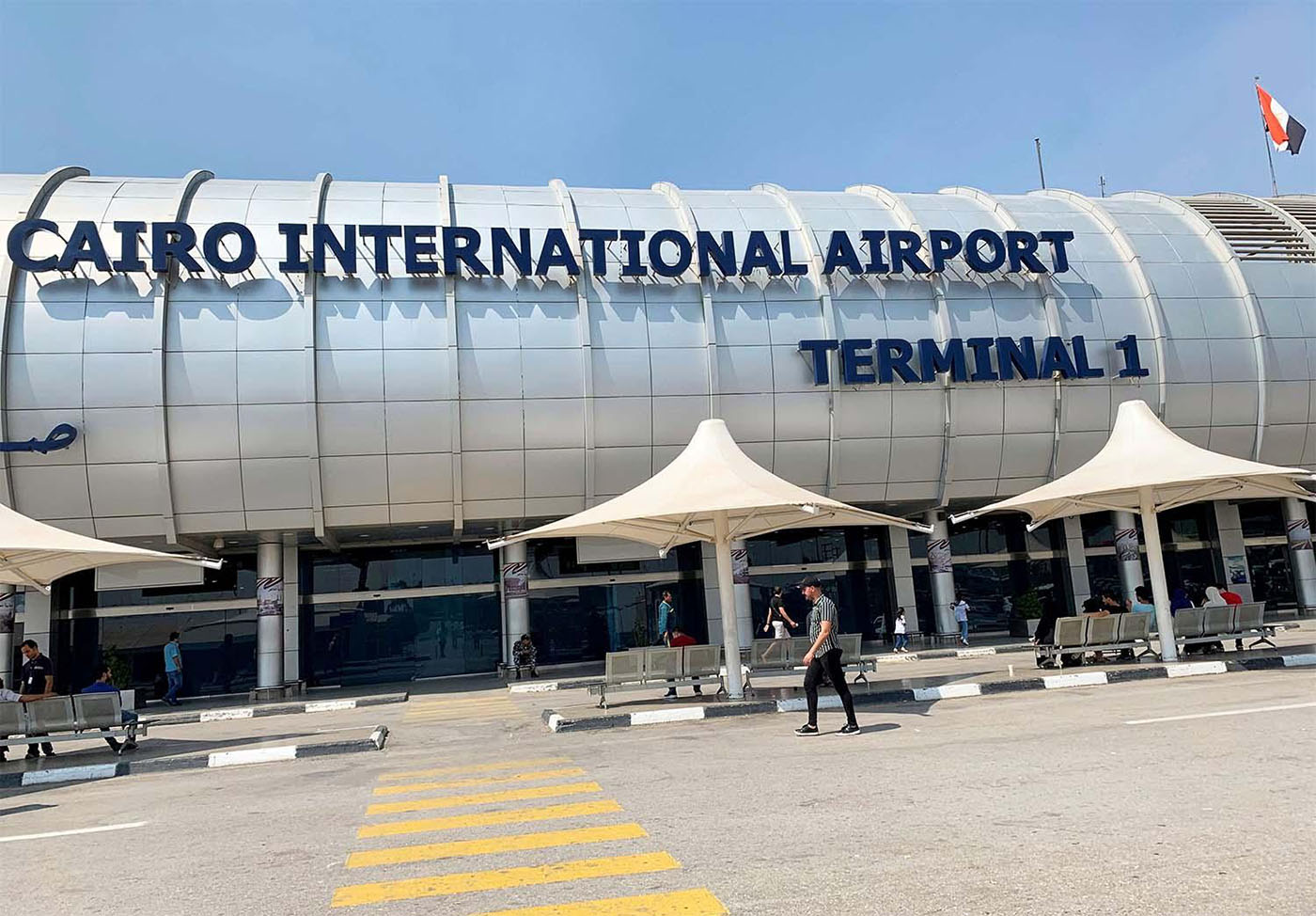
3
I woke up from my nap thankful for Berlin. As opposed to Cairo, no amount of tension in Berlin, it seemed, could barge in on my sleep. I decided that it was high time to develop my relationship with this city beyond the confines of my room, and in exchange for her love and understanding I would learn to speak her language and do away, once and for all with the uneasiness that had held me back for a year — that this city could one day replace that other. I still held on to my ticket to Cairo, my place on the flight reserved, but the glimmer of this city’s prospects outshone the decrepit gloomy past I wanted to leave behind.
And so, instead of calling my sister to apologize, I found myself remembering the ridiculous remark she had made the night I left, which suddenly felt like an insult — one that had taken a year to fully kick in: German women won’t give you the time of day. They’re all taller than you are,” she’d said. Bristling at the remark and eager to prove my sister wrong, I reached for my phone, and reactivated my Tinder account making sure to add my height (1.66cm) to my profile, re-igniting the challenge that I had once harbored, that I could attract a Berliner, a native German, a woman who did not speak English, or work in art or culture or as an asylum attorney, or held a master’s degree in politics or anthropology, and one who refrained from the banal redundancy of affixing an entire world to a conversation turned to Arabs, as though the Arab world were an exotic, magical dimension. The woman I sought was someone like the supermarket cashier, who complains at the growing line behind me because of how slow I am packing my shopping items into the cloth bag I’ve brought with me; or her colleague who I’d asked for assistance in locating the tea aisle, and to whom I owe spending two weeks in a constant state of drowsiness thanks to the relaxing tea I mistakenly picked up; or someone like the waitress at the bar, who blabbed a total paragraph that I couldn’t translate quick enough but handed her my credit card anyway, and the same goes for her fellow bar mates who took my hundred euros in response to another total barrage I again failed to translate. I wanted women like the ones lining up at bar entrances or athletes in the park. And I may not know much, but what I am certain of is that language, not height, is what comes between me and those women.
After randomly swiping right, I grew anxious at the wait for a response, no matter how much I tried to busy myself with other things. So, while making sure to keep an eye constantly on the phone I headed to Thomas’s door.
— “What’s the name of the club that you keep on about? The one you say that no one can call themselves a true Berliner unless they’ve been there?” I asked.
—“The Berghain. Let’s go!” he answered, almost immediately.
It turned out we couldn’t just go directly to the club. First Thomas ran a black kohl pencil liner over each of my upper eyelids, drawing a line across each one that extended all the way to each ear. With thoughts of height and language long dissipated from my thoughts, we headed to a second hand store, where in between trying on one outrageous outfit after another, Thomas explained how there was no one look that guaranteed its wearer entry into the Berghain. The only certain thing was that the club had an aversion to tourists, celebrities, vagabonds, or married couples. Beyond that, everyone else was welcomed.
— “The idea,” Thomas explained looking over an outfit I’d just worn, “is to discard your usual preppy bank-teller look, while making sure you don’t come across as though you’re trying too hard either.”
Despite the disparaging dig at my appearance, I was having a good time and for the first time our conversation did not turn into a cultural exchange in which I would have had to explain that, in Cairo, we were never given the freedom to dress as we pleased. Instead, I jokingly commented on his baffling choice to constantly dress in black when there was nothing in Berlin that required one to dress as if one were expecting a daily funeral.
It was here, in this moment, that for the first time, Thomas and I seemed to bond and where, with his blessing, I finally bought a black sheer top with a cut out that laid bare the left side of my chest.
Despite my friend’s warning, as indeed I now considered Thomas to be, that I might yet be denied entry into the club, I stood confidently in the nearly kilometer-long line, checking out the eagerly awaiting revellers as they whiled away the wait drinking and, in turn, eyeing each other.
—“It seems to me,” Thomas was saying, “that the choice of who’s allowed entry into the club has nothing to do with who the guest is. It’s about creating a mixture that guarantees a fun night for everyone. So, they’ll let in an American tourist, but then they’ll deny two others after him, for every woman in a dress they allow a man with an ear piercing, and the ratio of single men to single women has …”
Thomas’s words trailed off, as I was startled by a savage grip that claimed my shoulder. Although I had yet to turn around to identify the person that the hand belonged to, I was in no doubt that it had come from a fellow Cairenes. Zainab, with phone in hand, snapped a photo of us, before she launched herself at me for a hug, which I awkwardly reciprocated seeing only a bra covered her otherwise exposed chest. As she withdrew from our embrace, she took a long look at my clothes.
—“With clothes like these,” she commented with her usual sarcasm, “you’ve hit the point of no return. There’s no going back from this. Ever.”
I think I either congratulated her on the completion of her asylum proceedings, or perhaps I blabbered something about not having made my mind up yet about settling in Berlin. I don’t remember specifically. I finally escaped out of the line with the excuse of wanting to get more beer. I was sweating profusely which probably meant my black eyeliner would soon be running down in streaks all over my cheeks. I could detect a smell of dirt and dust in the air that hadn’t been there before. When I returned, Thomas had his goofy smile back on his face, but by now I was totally detached from any advice he was giving me on how I should maintain an aloof demeanor, so I wouldn’t seem too eager to get into the club and yet not so much so that the bouncers would mistake it for callousness. He had no idea that my entire attention was fixated on Zainab, who was strutting towards the bouncer, in her usual defiant stride, an attitude I recognized well and one she adopted to push up against authority of any kind. Snapshots of her in demonstrations we had participated in together flashed across my vision, before she disappeared from my view as the bouncer stepped aside to let her in.
I couldn’t tell you the exact moment Thomas stopped his monologuous deluge of advice but when he did, he placed a hand on my shoulder, and whether it was because he truly believed my father was sick, or because he knew from Hassan that he wasn’t or merely for something else to say, he imparted the finest wisdom he had given me that night, borrowed from a German proverb, which implied that a terrible end was better than an ongoing tragedy.
I admit that I did not pay heed to his words, because at that moment all I was really intent on was finding a way into the club. I wanted to catch up with Zainab before she went and posted our picture on Instagram, desperate to come up with any excuse other than the truth of how incriminating it would seem if it were to be seen by those who knew me in Egypt. Agitated to the extreme, my recourse was to swallow the LSD sticker my friend offered me, ignoring his advice to wait until we had at least managed to enter the club.
4
What a disappointment it’s been to find that nothing has changed my view of Berlin, even whilst high on a psychedelic drug, or is that, I wonder, because I never really knew the city to begin with?
Everything around me appeared the same. From the greenery of the trees to the thick accent of those around me. I heard neither music, nor smelt anything in the streets except shawarma. But then, I began to feel different. Could it be that I had grown taller? A meter taller at least? I must have because I was now having to bend down to pass beneath the city’s bridges. And was that a perfect command of German I was experiencing as I carried out my first Tinder conversation with a German woman? It must have been because here she is, in the flesh, guiding me into her house, which I have managed to get to without the need for a Google map search, as if I had always known the city’s streets off by heart. But wait! Who is that short man sitting on the sofa? And how can one grammatical error made in one language, come to mean that what had been promised between two, should now be consummated among three?
5
Once more, I am in a taxi headed to the airport. Remnants of the heady high from the night before have yet to leave my body. Taller or shorter no longer matters. I’ll soon discover my true size and worth once I reach my final destination. I have erased nothing from my phone. As truths mix in with fabricated lies, and reality gets lost within an envisaged nightmare, it matters not whether I return for a sister’s wedding or a father’s illness. I now believe I may be returning for both.
And, as if on cue, as the car speeds towards its destination, the driver turns around to ask me what I’m doing in Berlin while I, in turn, remain suspended between two answers, both truthful lies: Am I refugee or a temporarily passing visitor?




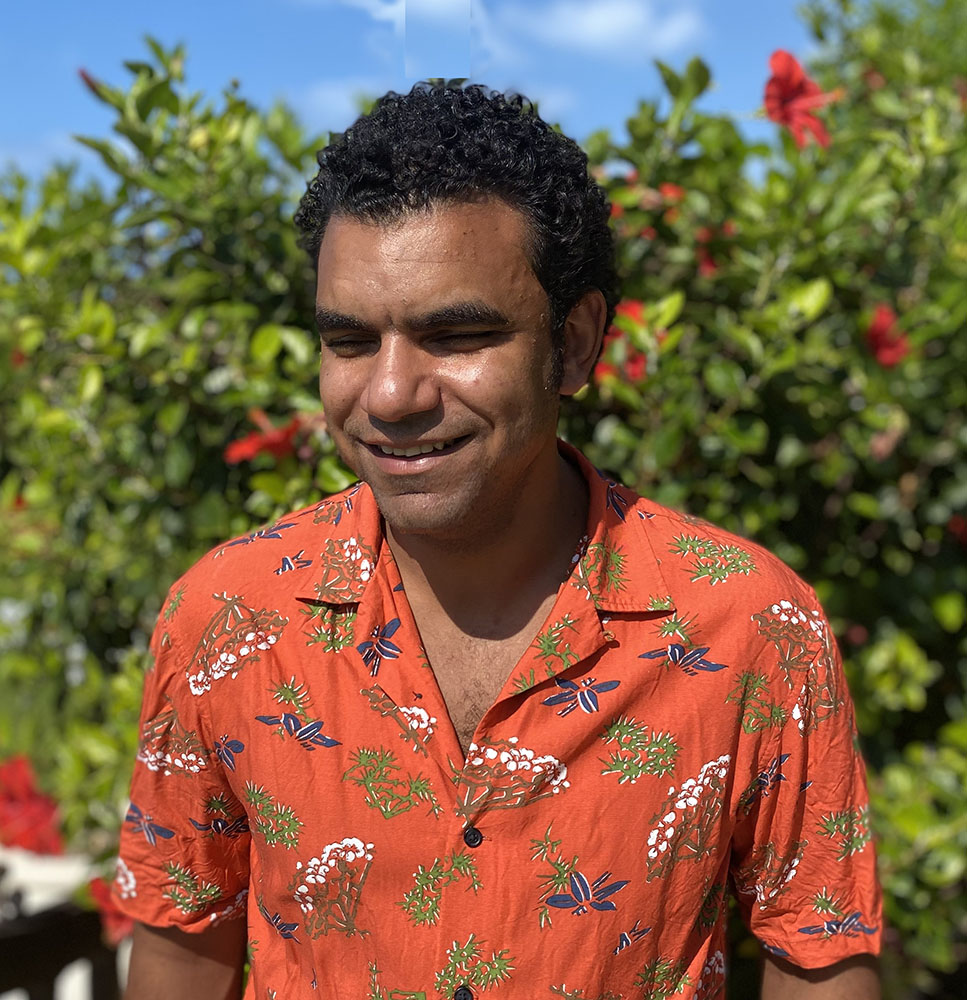

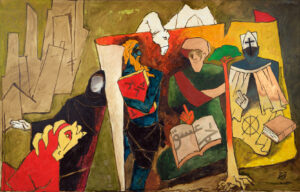

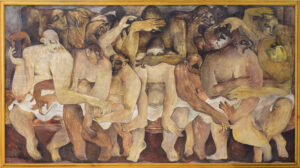
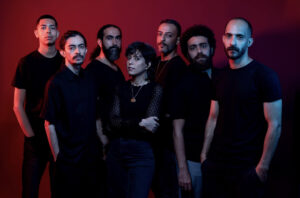


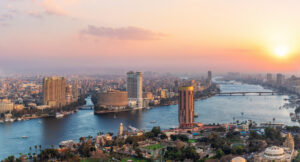


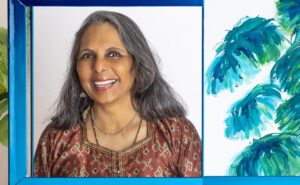










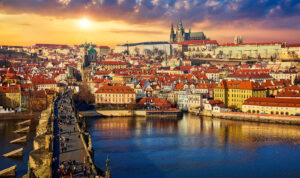






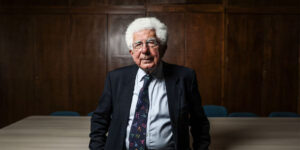





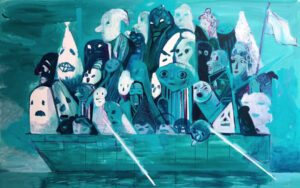




















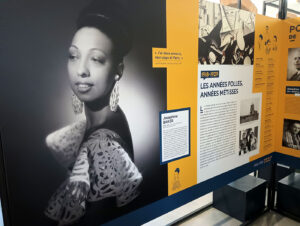






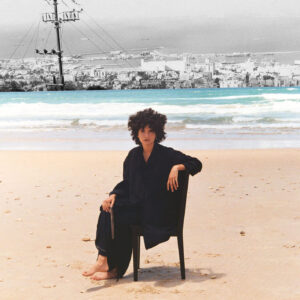




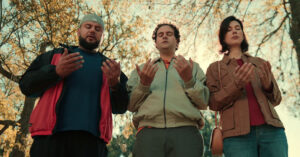













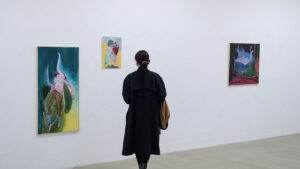













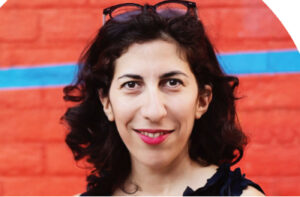

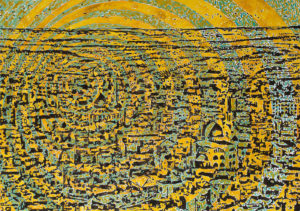



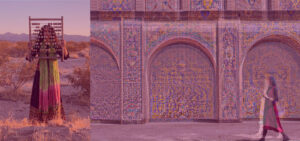


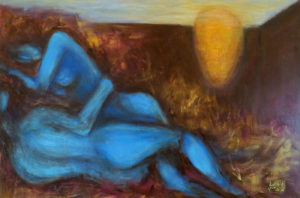














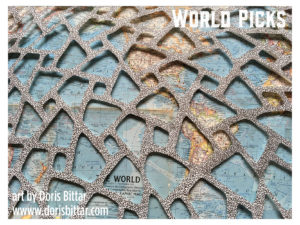
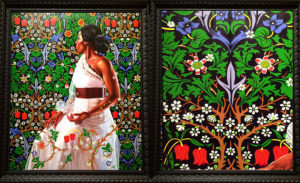







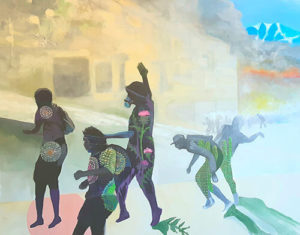

A brilliant story, I loved it. Congratulations to both of you. I loved the realism, the humour, the pace and the angst.